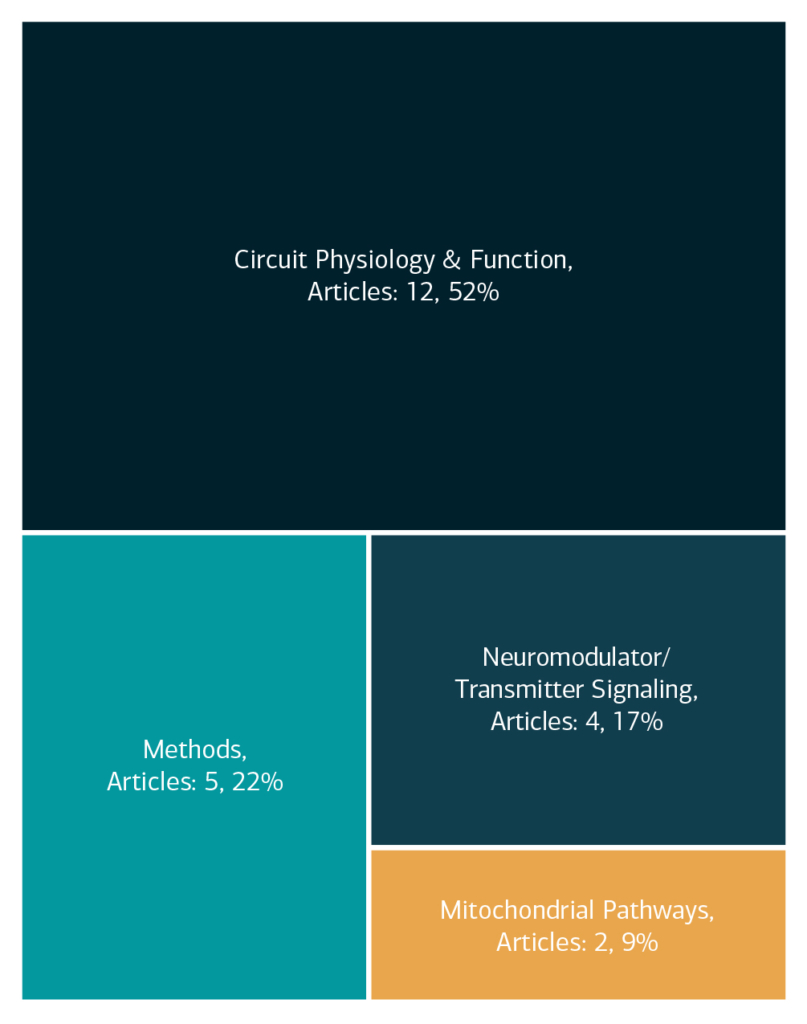Circuitry and Brain-Body Interactions | 2021
Distributed Circuit Dysfunction Underlying Motor and Sleep Deficits in a Progressive Model of Parkinson’s Disease
Study Rationale: Parkinson’s disease (PD) begins decades before it compromises the ability to move about in the world and sleep through the night. Understanding how the dysfunction of brain circuits begins and then evolves to cause difficulty in moving and sleeping will allow researchers to diagnose PD earlier—increasing the chances of halting disease progression—and to better treat the disease once it appears.
Hypothesis: The progressive damage to dopamine-releasing neurons results in staged disruption of neural circuits in larger and larger parts of the brain, ultimately leading to both motor and sleep deficits characteristic of PD.
Study Design: Team Surmeier’s plan is to study a new genetically engineered mouse model that manifests a progressive, levodopa-responsive parkinsonism. Importantly, this mouse faithfully reproduces the human staging of pathology in key brain circuits. Using the most advanced methods available for studying and manipulating genetically defined brain circuits, the causal linkage between circuit dysfunction and motor and sleep behavior will be determined.
Impact on Diagnosis: A better understanding of how the circuit dysfunction underlying PD is staged should allow earlier diagnosis—enhancing the potential benefit of disease-modifying therapies—and better treatment strategies for later-stage patients.
Leadership
Project Outcomes
Team Surmeier's project will provide fundamental insight into the relationship between progressive dopamine depletion and distributed circuit dysfunction underlying motor and sleep symptoms of Parkinson’s disease. View Team Outcomes.
Team Outputs
Click the following icons to learn more about the team’s outputs:
Overall Contributions
Here is an overview of how this team’s article findings have contributed to the PD field as of May 2025. There are two different categorizations of these contributions – one by impact to the PD community and a second by scientific category.
Impact

Category

Featured Output
Below is an example of a research output from the team that contributes to the ASAP mission of accelerating discoveries for PD.
Tonic dendritic GABA release by substantia nigra dopaminergic neurons
Utilizing optogenetic approaches allowed Team Surmeier to assess how dopamine impacts the release of GABA from substandia nigra pars reticulata neurons. The study results show that presynaptic D2 dopamine receptors inhibit the phasic release of GABA. In addition, the D2Rs suppressed a tonic GABAergic inhibition of SNr spking. These results indicate that the dendritic co-release of dopamine and GABA promotes movement.
Team Accolades
Members of the team have been recognized for their contributions.
- Open Science Champions: Enrico Zampese, James Surmeier, Vernon Clarke, Richard Roth, Jun Ding
- Awards
- 2023 Collaborative Meeting: Lindsey Xiaolin Huang (Second Place in Circuitry; San Diego)

Other Team Activities
- Interest Groups: Circuit Physiology & Function – James Surmeier (Co-Chair)
In the News
- New study of the brain’s circuitry will track Parkinson’s disease from its origins (The Campaign for Berkeley: Light the Way)
- Columbia scientists and team of international experts awarded $9M to investigate early Parkinson’s (Columbia Zuckerman Institute, October 26, 2021)
- $18 Million For Parkinson’s disease research to study brain circuits driving symptoms (Northwestern Medicine, press release, October 27, 2021)
- Parkinson’s disease researchers to study brain circuits driving symptoms (Northwestern Now, November 2, 2021)
- 2 Northwestern researchers awarded $17.9M in ASAP grants (Parkinson’s News Today, November 8, 2021)
- Neuronal diversity impacts the brain’s information processing (Northwestern Medicine, February 19, 2024)












